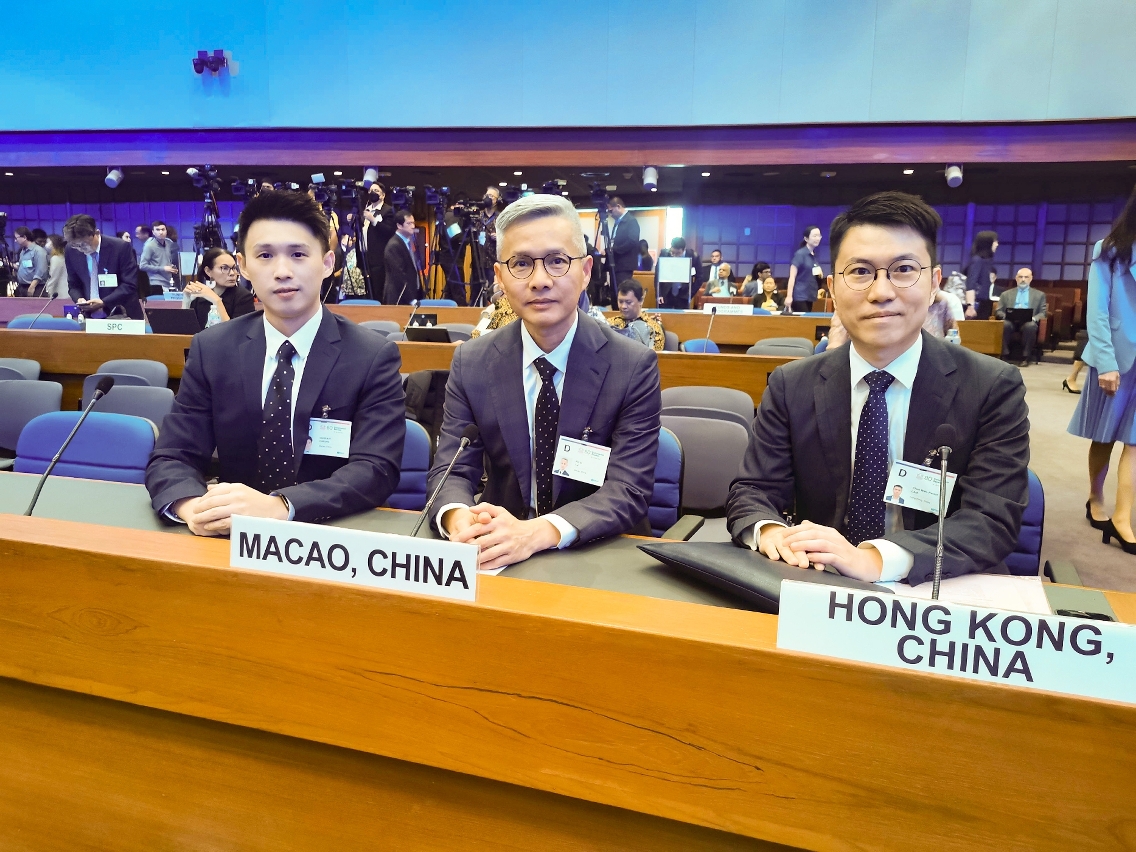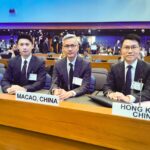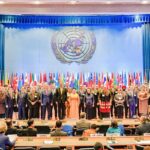 Delegates including the DSEDT’s Director Tai Kin Ip attend ESCAP’s 80th session
Delegates including the DSEDT’s Director Tai Kin Ip attend ESCAP’s 80th session
The 80th session of the United Nations Economic and Social Commission for Asia and the Pacific (ESCAP) was held in Bangkok, Thailand from 22 to 26 April 2024. To strengthen the connections and exchanges between Macao, China and other ESCAP members, the Director of the Economic and Technological Development Bureau of the Macao Special Administrative Region Government (DSEDT), Mr. Tai Kin Ip, attended the session as a delegate of Macao, China.
Themed “Leveraging digital innovation for sustainable development in Asia and the Pacific”, this session aimed to discuss how digital innovation can more inclusively contribute to the achievement of the Sustainable Development Goals across multiple disciplines. It will also review the status of implementation of the 2030 Agenda for Sustainable Development in Asia and the Pacific, as well as the issues pertinent to the subsidiary structure of the Commission.
During the session, delegates of Macao, China submitted to the Commission a written statement which introduced the SAR Government’s efforts in popularizing electronic payment, assisting small and medium enterprises (SMEs) in enhancing productivity by application of technology and expediting the digital transformation of SMEs.
ESCAP is the regional agency of the United Nations Secretariat for the Asia-Pacific region. Its mission is to assist members in resolving social and economic challenges through regional cooperation and integration. Macao, China, which has for a long time been participating in ESCAP’s annual sessions as an associate member, maintained virtual exchanges with ESCAP members during the pandemic and resumed its physical participation at this session by sending delegates to Bangkok, Thailand.



